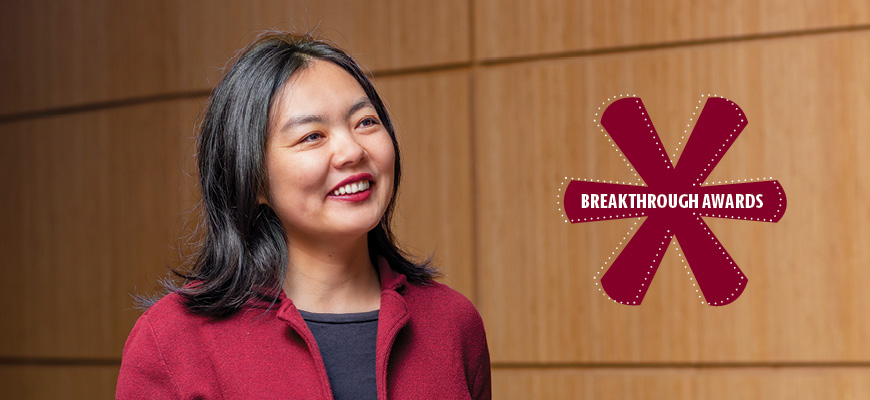
Breakthrough Star: Shan Qiao
Public health researcher addresses stigma, isolation of people living with HIV
Posted on: June 8, 2020; Updated on: June 8, 2020
By Chris Horn, [email protected], 803-777-3687
It’s been nearly 30 years since NBA star Magic Johnson retired from basketball after revealing his HIV-positive status, but the passage of time since has done little to dull the stigma that accompanies HIV diagnoses around the world.
Shan Qiao, an assistant professor in the University of South Carolina’s Arnold School of Public Health, is engaged in HIV-related research on three continents with a focus on promoting the linkage to care among people living with HIV and improving their clinical outcomes and quality of life. As part of that focus, she explores the ways in which HIV-positive individuals disclose their diagnoses to friends and family and develops strategies and interventions that can produce the best possible outcome for those involved. Qiao also is interested in reducing the chronic stress that often accompanies an HIV-positive status.
“I’m concerned with the psycho-social wellbeing of those living with HIV,” says Qiao, a faculty member in the Department of Health Promotion, Education and Behavior and the S.C. SmartState Center for Healthcare Quality. “Immune systems are negatively affected by chronic stress, so I’m developing intervention strategies for those living with the stress of being HIV positive.”
I really believe in the balance between your mind and body, a holistic perspective on mental and physical health.
Shan Qiao, public health professor
One such strategy involves mindfulness techniques that have been effectively employed by cancer survivors but by and large haven’t been used by people living with HIV, Qiao says.
“There is evidence that a mindfulness-based intervention works for diverse populations,” she says. “I really believe in the balance between your mind and body, a holistic perspective on mental and physical health. If you’re always stressed, you’re at higher risk for chronic illness.”
Qiao has conducted HIV research in her native China, in Zambia and in South Carolina, and while cultural differences abound, one thing is constant — people living with HIV fear the stigma and negative consequences of disclosure. “They are afraid of being shamed, isolated and discriminated against,” she says.
In Zambia, Qiao notes that same-sex sexual behavior is illegal, and strong cultural and social norms associate same-sex relationships with being anti-Christian and, therefore, anti-Zambian. In China, society generally views same-sex sexual behavior as a threat to the traditional family with men expected to build theirs with a son to carry on the family name.
And for drug users and those involved in the sex trade there are more complicated, intersecting stigmas, Qiao says. While a doctoral student at Johns Hopkins University, Qiao was involved in HIV prevention research among female sex workers in China, an experience that got her interested in HIV research as a career.
“Marginalized by society and with a high risk of infection, the more I interviewed them, the more I understood their feelings, their situations and the challenges they face like stigma and discrimination, even from their own family members,” she says. “That’s why I’m interested in HIV prevention and treatment.”
Share this Story! Let friends in your social network know what you are reading about